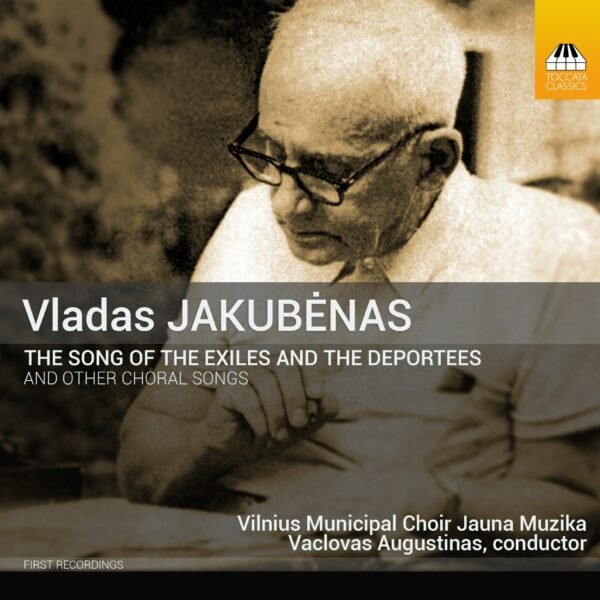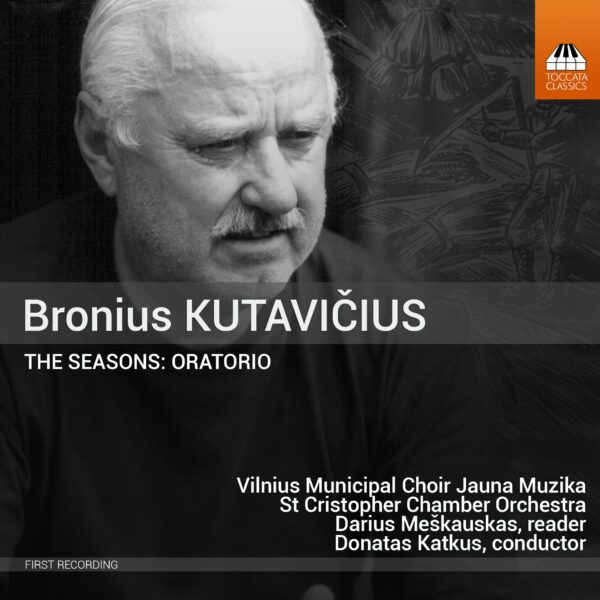Vladas Jakubėnas: The Song of the Exiles and The Deportees and Other Choral Songs
The Lithuanian Vladas Jakubėnas (1904–78) is one of a lost generation of Baltic composers. A student of Schreker in Berlin, he returned home to help build the musical culture of his country. But the Nazi invasion and Soviet occupation drove him into exile and, after five years in refugee camps in Germany, he settled in Chicago, playing an important role in the Lithuanian diaspora in North America. These choral songs show the deep identification of his late-Romantic style with the folk-music of the land he was forced to leave behind.
Vilnius Municipal Choir Jauna Muzika
Jurgita Mintautiene, soprano
Gintautas Skliutas, tenor
Dainius Jozenas, piano
Vaclovas Augustinas, conductor
Listen To This Recording:
- O I Would Go
- The Song of the Exiles and the Deportees
- Our Mother’s Tongue
- At Evening Prayer
- Many Lovers Have I Had
- Hush, Little Sister
- Jesus, Thou art my Life
- O, If I Only Could See Him
- Here I Am, O King of Glory
- In Silence Thou art Celebrated
- Over the Seas, Beyond the Nemunas River
- Oh, Father is Giving His Dear Daughter Away
- I Used to Walk in my Garden
- Oh. A Girl is Growing, Growing
- Mother Raised Her Daughter
- High Hills, Level Meadows
- A Little Bird is Sitting, Perched
- Across the Seas



MusicWeb International :
‘His music is reputed to be “a fusion of romanticism and impressionism” with folk elements. … The sense of exile from distant homelands has a touching fragrance across the disc’s 55 minutes and 18 songs. The longest is 5:12 and the shortest 1:18 so they get succinctly to the point both musically and in the plot line. They are sung by a 25-strong Lithuanian mixed voice choir whose sound is excitingly captured and rendered across the loudspeakers. The songs divide between religious and folk aspects but are always anchored to melody and tonality. The first, O I Would Go, combines the two in a protesting devotion to homeland. The singing often burns fervently but not at the expense of clarity of enunciation or the sheer strength of the unison production. … Our Mother’s Tongue has a piano introduction and is redolent of the Kodaly choral songs. It is for females voices only. At Evening Prayer has the same invocatory simplicity and something of the Rachmaninov Vespers without the deep bass undertow. The lovely Many Lovers Have I Had is sung from a woman’s viewpoint and again has a piano introduction. Its rocking motion and nostalgic spirit – “Who will call that summer back” – makes for one of the most affecting songs here. I mentioned Kodaly but the spirit of the folksongs and their ‘plotlines’ are very much of a piece with the Canteloube Songs of the Auvergne. … Jakubėnas is good at choosing just the right note and treatment to avoid suffocating these blooms. Another fine song comes in the shape of Oh, Father is Giving His Dear Daughter Away with its medieval subject matter and the cruelty of taking back the errant daughter but not her child. Unusually a soprano solo voice appears here: piercing and poignant. The folksongs do not shy away from a bitter tragic edge. … The folksongs continue with High Hills, Level Meadows which seems to take joy in grim events, the lively carolling optimism of A Little Bird is Sitting, Perched and the final sweetness of Across the Seas. The booklet is well up to Toccata Classics’ standards of excellence.’
—Rob Barnett, MusicWeb International
Fanfare Magazine :
‘The choir has an enviable evenness of ensemble, with words that are completely clear.’
—Alan Swanson, Fanfare Magazine, 13 June 2016